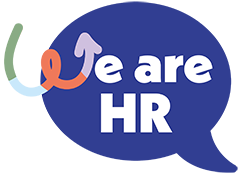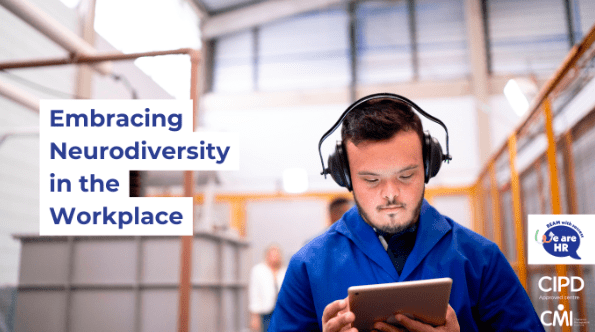Table Of Contents
Introduction
Neurodiversity Celebration Week (March 17-25, 2025) is an important reminder of the value and potential that neurodivergent individuals bring to workplaces. Neurodiversity refers to the natural differences in how people think, learn, and interact with the world. It includes individuals with conditions such as ADHD, autism, dyslexia, and dyspraxia, among others. While many organisations are beginning to understand the importance of diversity and inclusion, embracing neurodiversity can be an untapped opportunity to unlock new strengths and create a truly supportive environment for everyone.
With an estimated 15% of the UK population being neurodivergent, businesses that foster inclusive environments are better equipped to harness the unique skills, creativity, and perspectives that come from thinking differently. This blog will explore why embracing neurodiversity matters, the steps businesses can take to build a supportive workplace, and how promoting awareness and inclusion can create lasting positive change.
Why Embracing Neurodiversity Matters
The benefits of welcoming neurodivergent talent are clear. By encouraging inclusive environments, businesses can unlock:
- Innovation and Creativity: Neurodivergent individuals often bring fresh perspectives, innovative thinking, and problem-solving approaches that may be overlooked by conventional methods.
- Productivity and Focus: Some neurodivergent individuals excel in areas requiring deep focus, pattern recognition, or creative thinking, making them highly valuable for roles in IT, design, engineering, and beyond.
- Diverse Skill Sets: Whether it’s exceptional attention to detail, heightened memory, or creative thinking, embracing neurodivergent employees helps businesses thrive.
Despite these strengths, neurodivergent individuals are often underrepresented in the workplace. For example, only 22% of autistic adults in the UK are employed. By improving inclusivity, businesses can unlock a pool of highly capable, underutilised talent.
Practical Steps to Build a Neurodivergent-Supportive Workplace
Creating a truly inclusive environment requires practical changes that ensure neurodivergent employees feel supported and valued. Here are key steps businesses can take:
1. Flexible Work Arrangements
Every individual thrives under different working conditions. Offering flexible hours, hybrid working options, or quiet workspaces can significantly improve comfort and productivity for neurodivergent employees. This flexibility aligns with CIPD’s emphasis on supporting individual working styles to boost engagement and retention.
2. Clear and Structured Communication
Clear communication is key to reducing misunderstandings and helping employees feel confident in their roles. Strategies include:
- Providing written instructions alongside verbal guidance
- Using visual aids where possible
- Offering clear expectations, deadlines, and task breakdowns to support organisation and focus
By adapting communication styles, managers can foster greater understanding and empower neurodivergent employees to perform at their best. HR professionals can ensure these practices are embedded across teams to improve collaboration.
3. Sensory-Friendly Environments
For some neurodivergent individuals, environmental factors such as noise, lighting, or crowded spaces can be overwhelming. Creating sensory-friendly spaces that minimise distractions such as quiet rooms, adjustable lighting, or noise-cancelling headphones can significantly improve employee comfort and productivity. CMI recommends such workplace adjustments to improve well-being and reduce absenteeism.
4. Inclusive Hiring Practices
Recruitment processes are often unintentionally designed in ways that disadvantage neurodivergent candidates. Simple adjustments can help bridge this gap:
- Write clear and jargon-free job descriptions
- Offer alternative interview formats (e.g., written tasks or practical assessments)
- Provide candidates with interview questions in advance to reduce anxiety
Additionally, offering an onboarding buddy system can help new employees feel welcomed and supported during their transition. HR leaders play a pivotal role in shaping inclusive recruitment policies that embrace diverse talent.
5. Training and Awareness
Promoting awareness and educating staff about neurodiversity is essential for fostering an inclusive culture. Providing managers and teams with training on neurodivergent conditions helps create understanding, reduce stigma, and empower employees to embrace diversity.
6. Building Support Networks
Creating safe spaces for open conversations and peer support can significantly enhance workplace inclusivity. Employee resource groups (ERGs) focused on neurodiversity offer valuable resources, mentorship, and a sense of community for neurodivergent employees. Encouraging employees to share their experiences in safe, supportive environments also helps build a stronger, more inclusive culture.
The Role of Leadership in Driving Change
Leaders and managers play a crucial role in building a neurodivergent-supportive workplace. By leading with empathy, awareness, and flexibility, they can foster an environment where all employees feel valued. Encouraging open dialogue, actively listening to employee needs, and demonstrating commitment to inclusivity will create lasting change.
Managers should regularly check in with employees to understand their individual needs, identify potential barriers, and adapt processes to support their success. By taking these steps, leaders can ensure that inclusion is embedded in everyday practices rather than seen as a one-time initiative.
Celebrating Neurodiversity Week: An Opportunity to Drive Change
Neurodiversity Celebration Week is an ideal opportunity for businesses to reflect on their practices, highlight the contributions of neurodivergent staff, and promote inclusivity. Here are some ways organisations can celebrate:
- Host educational workshops or webinars about neurodiversity
- Share success stories of neurodivergent employees within your organisation
- Organise team-building activities that foster collaboration and understanding
- Encourage employees to share their own experiences in safe, supportive spaces
By actively participating in Neurodiversity Celebration Week, businesses can demonstrate their commitment to fostering inclusivity; not just for one week, but all year round.
Conclusion
Creating a workplace where neurodivergent individuals can thrive isn’t just about doing the right thing; it’s about recognising and unlocking untapped talent, driving innovation, and building stronger teams. By embracing flexibility, improving communication, and fostering awareness, businesses can create an environment where everyone feels valued and empowered.
As we approach Neurodiversity Celebration Week, let’s take this opportunity to reflect on how our workplaces can better support and celebrate neurodivergent talent. Together, we can build a world where differences are embraced, and everyone has the opportunity to succeed.
We are accredited CIPD and CMI training providers; check out our courses to learn more about inclusive leadership, effective communication, and diversity best practices.


